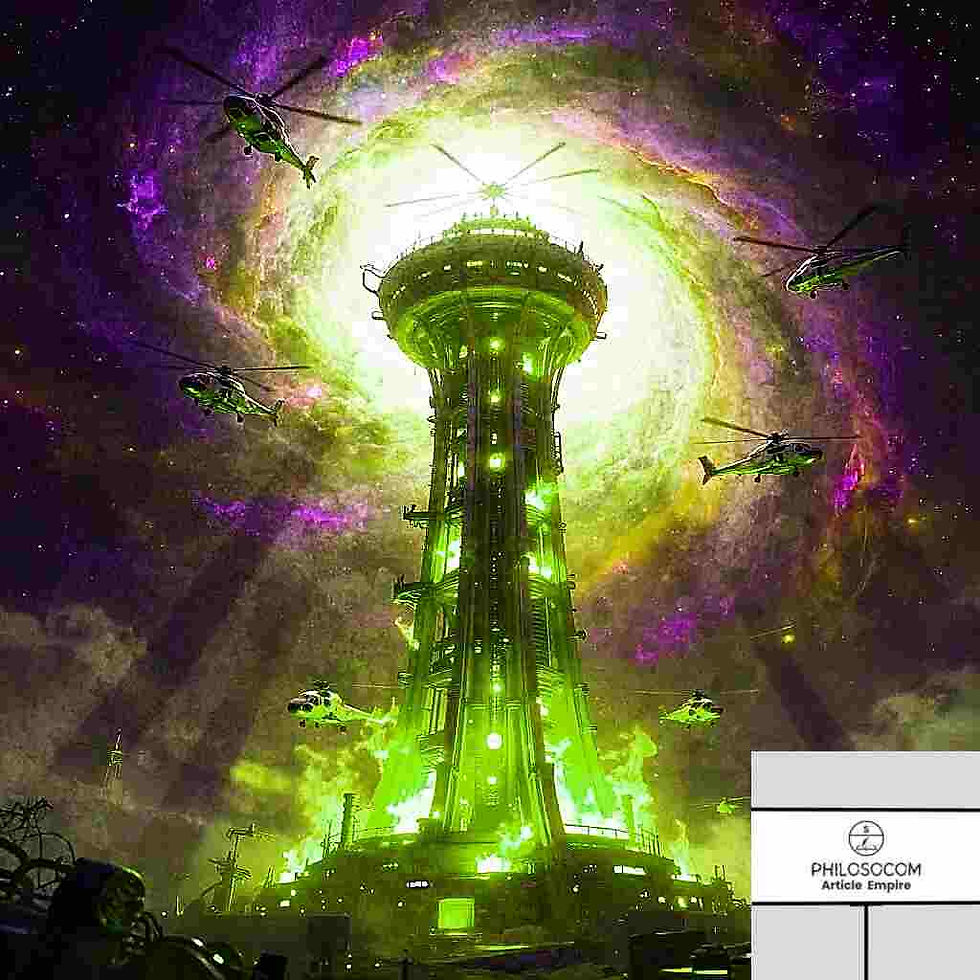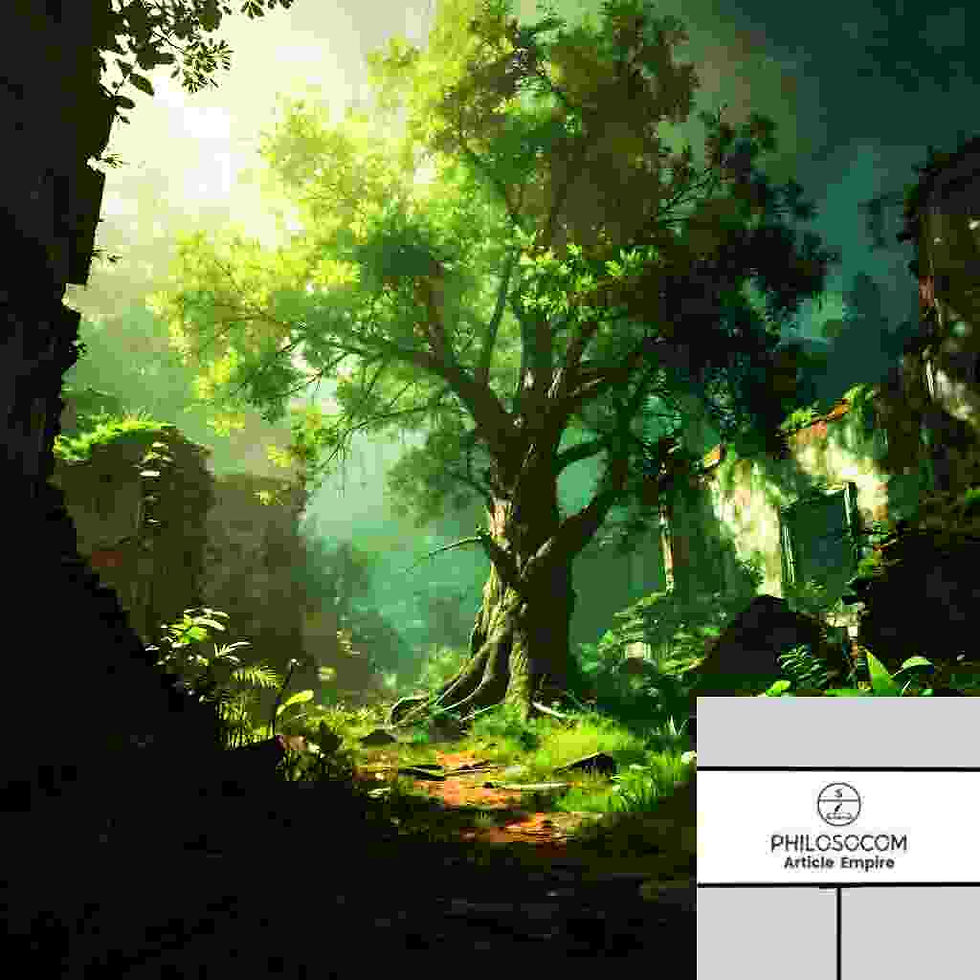On the Path to Purity -- The Philosophy of "Peret em Heru" (a Survival Horror Game)
- Mr. Tomasio Rubinshtein

- Oct 29, 2021
- 7 min read
Updated: Feb 8, 2025
Summary by Anonymous
Mr. Tomasio discusses the concept of moral purity and the challenges of achieving it. He argues that absolute purity is an unattainable ideal and that humans are inherently flawed.
He uses the example of the Japanese survival horror game "Peret Em Heru" to illustrate the harsh consequences of failing to uphold absolute moral purity. The game portrays a world where only those who commit no sin can escape the punishment of death.
The writer then delves into the complexities of morality and the importance of navigating the grey areas. He emphasizes the need for a personal moral compass and the importance of learning from mistakes.
He concludes concludes by arguing that the true journey lies in the constant striving towards ethical living, rather than achieving perfection.
Accepting Imperfection As An Inevitable Possibility
An essential question confronts anyone seeking moral purity, be it for personal growth, religious duty, or any other reason, stands. If your pursuit of purity were tested, would you accept death as the consequence of an impure act, or would you acknowledge your imperfection and live with it?
What does it mean to be truly pure? It's not simply avoiding intentional malice...
It's about navigating the complexities of morality, where even good intentions can lead to unintended harm. A lie told to "protect" someone can still inflict pain. A harsh word rooted in "tough love" can leave lasting scars and even a quest for vengeance.
Even well-meaning actions can fall short of purity. Consider the once-common practice of child discipline through physical punishment. The intent may have been "good," but the act of violence against a vulnerable being remains inherently wrong, leaving a stain on the perpetrator's moral canvas, for good.
While purity, by its ideal, demands perfection, the human experience rarely obliges to comply. Even individuals with pure intentions and kind hearts may carry the weight of past "sins," for the past cannot be restored, only redeemed. This raises the unsettling question: Are they forever restricted from being considered pure? To delve deeper into this moral grey area, let's turn to an obscure Japanese horror game from the 1990s called "Peret Em Heru" ("For the Prisoners").
This haunting title explores the brutal consequences of failing to uphold absolute moral purity. In its world, only those who commit no sin, including a single lie, can escape death, for all crimes, moral or legal equally deserve punishment. One of the deaths in the game is that of Rin Tsukihara, a 9 year old student who got killed because she was a liar.
Failure to save even one of the eleven characters under your protection brings swift and unforgiving punishment. Out of all the eleven, only 2 cannot be saved, which are an evil professor and his henchman. Professor Tetsuya Tsuchida is evil by default for setting an expedition into a cursed tomb while using tourists as meat-shields (a horrible way to regard humans).
Somehow, the remaining one character who venture into the Pyramid(s) of Giza in the game, is faultless, and thus doesn't need to be saved.
"Peret Em Heru" may be a fictional nightmare, but it poses a chilling question: do we, humans, even have the capacity for genuine, absolute purity? Perhaps the true test lies not in the ideal, but in the constant striving towards it, acknowledging our faulty lives, and learning from our imperfections.
For in the grand system of morality, the threads of good and bad are complexly woven. True strength lies not in striving for an unattainable ideal, but in the embrace of our complex and ever-evolving nature. Embrace of our faults, and their usage for improvement. That includes the traumatic experience of rejection.
Navigating the Labyrinth of Purity
Beneath the desert sands of Egypt lies a labyrinth of stone and shadows, the cursed Great Pyramid of Giza, where supernatural forces judge not with malice, but with a chilling, unwavering commitment to absolute moral purity. For that's how pure logic works: It is ruthless as it is merciless.
Within its depths, your "tourist exploration" turns into a desperate struggle for survival, not just for yourself, but for the ragtag group caught the clutches of a cursed God.
The first to fall victim is a mere child, her only "sin" is lying – a stark and horrifying testament to the pyramid's fanatical moral code. Among the tourists, fear and anxiety dance as each member harbors their own hidden shortcomings. Lies, thefts, betrayals – sins both petty and grievous hang heavy in the suffocating air of the underground ruins.
Yet, most of their fates rest in your hands, for only you, the player, hold the power to save them from the pyramid's brutal punishments.
But is their salvation truly a victory? The journalist, Soji Mizumi, shielded by his profession, uses blackmail to exploit and harm. Even if you rescue him, will he abandon his wicked ways? In Pharaoh Khufu eyes (the pyramid's ruler), saving him might be as much a sin as letting him die. Hence why he has no remorse in attempting to kill him, the same as he can kill a mere child for being a liar.
This is no ordinary fairy tale quest where good deeds bring happy endings. Here, the arbitrator of justice is a cruel villain who haunts all the humans who enter his domain for the sole reason of being flawed human beings, thus deserving death.
For purity, in his cursed realm, is not a gentle halo, but a harsh, unforgiving ideal that only very few people can actually attain. Like a crystal-clear white sheet, any mark, however tiny, renders it forever stained. It's a chilling reflection of the human condition, where even the faintest shadow of imperfection can negate all that is good.
Yet, amidst the despair, a glimmer of hope emerges. Protected by the pyramid's unseen hand, Kyosuke Hino stands tall on the pedestal of purity, being the only human deemed worthy by the ancient Paraoh. The ancient Paraoh thus strives to eliminate all, while giving that one boy his own powers, as reward for being deemed worthy of succession.
But you, too, hold the power to decide as a force against or alongside that monarch. Will you be the instrument of salvation, rescuing even the undeserving from the jaws of their sins? Or will you wield your moral compass like a weapon, condemning those whose past transgressions taint their souls?
Remember, "pure" is a label that's constantly doomed for indefinite peril. Your own journey has undoubtedly been marked by moments of imperfection. Lies rose in childhood, curses uttered in anger, moments of unkindness that tempted to be made by hatred.
Yet, it is not the absence of flaw that defines us, but our capacity to learn, to grow, to strive towards that ever-elusive ideal of being better, per our hopes and dreams.
The game, upon contemplation, challenges with the complexities of our own reality. It reminds us that the path to moral truth can never be a straight line, for a straight line is perfect. Instead, it's a labyrinth of choices, consequences, and self-reflection on the past, all prone to our freedom.
The greatest victory may not be in achieving purity, but in navigating the labyrinth of choices with courage, empathy, and a willingness to learn from every misstep like a competent villain. Being called a Tom, or a pure being in Hebrew, is a falsehood that can never be a reality. Thus, I am Tomasio.
Stepping Through the Moral Maze: Lessons from "For the Prisoners"
Unlike the game's save files, real life doesn't have a rewind button. Each decision, each action, leaves a mark, a ripple in the fabric of our existence, that could change reality as with the example of the butterfly effect. But while absolute purity may be a distant mirage, the journey towards it, the constant striving to be better, is what truly defines us.
Morality is not a static code, marked in stone. What one era deems sinful, the next might embrace. Dungeons and Dragons, once a trigger for moral panic, is a common game for clique groups. Coffee, once the devil's brew, now fuels the energies of millions for work. This inherent subjectivity necessitates a personal compass, a guiding light within that helps us navigate the grey areas, the blurred lines between right and wrong, from becoming an anti-hero to becoming an anti-villain.
But amidst the grey, there are lines we must not cross. Bullying, a malicious infliction for another's pain, can push someone to the despair of self-sacrifice. Harassment, as well, can get you PTSD. Violence can escalate in the blink of an eye, leaving behind a trail of regret and devastation. These are not mere transgressions; they are acts that tear at the fabric of human connection, capable of making us lose faith in humanity, thus reducing our overall potential as individuals and collectives.
While no divine intervention may necessarily inflict punishment, the human conscience is a powerful judge. The sting of regret can be a heavy burden to bear. A moral compass, nurtured by empathy and compassion, can help us navigate this treacherous terrain of this unforgiving world while avoiding the pitfalls of remorse. All in the name of choosing paths that lead towards a more just and harmonious world.
Conclusion
Ultimately, the journey towards ethical living is not about being perfect, but about being better. It's about learning from our missteps, embracing our imperfections, and striving to make choices that align with our values.
It's about acknowledging the inherent subjectivity of morality while holding ourselves accountable for the consequences of our actions on others. It's about stepping through the moral maze with the humility of a lifelong learner, seeking to build a world where kindness and understanding light the way, one person at a time.
For the choice to be ethical forever rests on our shoulders no matter who we are and what feelings we have (and don't have).








Comments